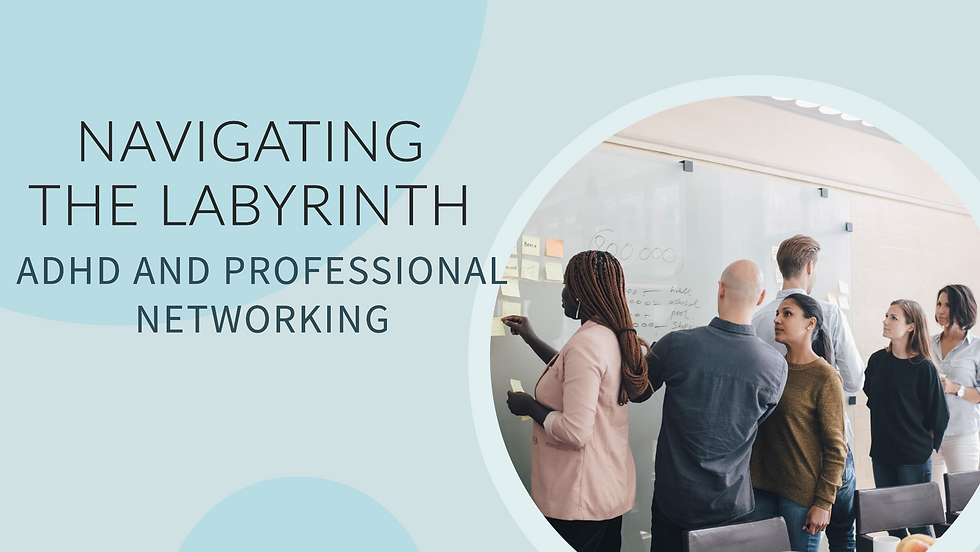
Introduction: (www.youtube.com/kneetiegorungo)
In the intricate dance of professional life, networking and career development are pivotal steps toward success. However, for individuals with Attention-Deficit/Hyperactivity Disorder (ADHD), these steps can sometimes feel like navigating a labyrinth with no clear exit. ADHD, characterized by symptoms of inattention, impulsivity, and hyperactivity, can pose unique challenges in professional settings, particularly in activities requiring sustained attention and social finesse, such as networking. This article explores the influence of ADHD on professional networking and career development, shedding light on the hurdles faced and offering strategies to turn these challenges into opportunities for growth and achievement.
Challenges in Professional Networking
For individuals with ADHD, networking events can be overwhelming, presenting a complex array of social cues and interactions to manage:
1. Difficulty with Focus: Maintaining focus in dynamic networking environments, where multiple conversations and stimuli occur simultaneously, can be challenging for those with ADHD.
2. Impulsivity in Conversations: The impulsivity associated with ADHD may lead to interrupting or dominating conversations, potentially impacting first impressions and professional relationships.
3. Organizational Challenges: Keeping track of contacts, following up on conversations, and managing a professional calendar require organizational skills that individuals with ADHD might find difficult.
Career Development Hurdles
ADHD can also impact long-term career development in several ways:
1. Consistency in Performance: Fluctuations in attention and motivation can lead to inconsistent performance at work, affecting career advancement opportunities.
2. Time Management: Struggles with time management and procrastination can hinder the completion of tasks and projects, critical for career growth.
3. Self-Regulation: Managing stress and emotions in the workplace is crucial for professional development. Individuals with ADHD may find these aspects of self-regulation more challenging.
Strategies for Success
Despite these challenges, there are effective strategies and accommodations that can empower individuals with ADHD to thrive in networking and career development:
1. Preparation and Planning: Before attending networking events, preparing talking points and questions can help manage conversational flow and reduce anxiety.
2. Leveraging Technology: Utilizing organizational apps and tools for managing contacts, tasks, and reminders can mitigate organizational challenges.
3. Mindfulness and Stress Management Techniques: Practices such as mindfulness meditation can enhance focus and emotional regulation, improving networking interactions and workplace performance.
4. Seeking Support: Career coaches, mentors, or support groups for professionals with ADHD can provide guidance, accountability, and encouragement.
5. Highlighting Strengths: Focusing on the unique strengths associated with ADHD, such as creativity, problem-solving, and the ability to hyper-focus on passionate interests, can differentiate individuals in their professional fields.
Conclusion:
Navigating professional networking and career development with ADHD presents a unique set of challenges, but also opportunities for innovation and growth. By employing strategic planning, leveraging supportive technology, and focusing on their strengths, individuals with ADHD can build meaningful professional relationships and advance their careers. Embracing the journey with adaptability and resilience can transform the labyrinth of professional networking and career development into a path leading to success and fulfilment.
The domain www.dubaitelemedicine.com is for sale. Please contact us at www.kneetie.com
#KneeTie #Stroke #youtube/kneetiegorungo #DubaiTelemedicine









Комментарии